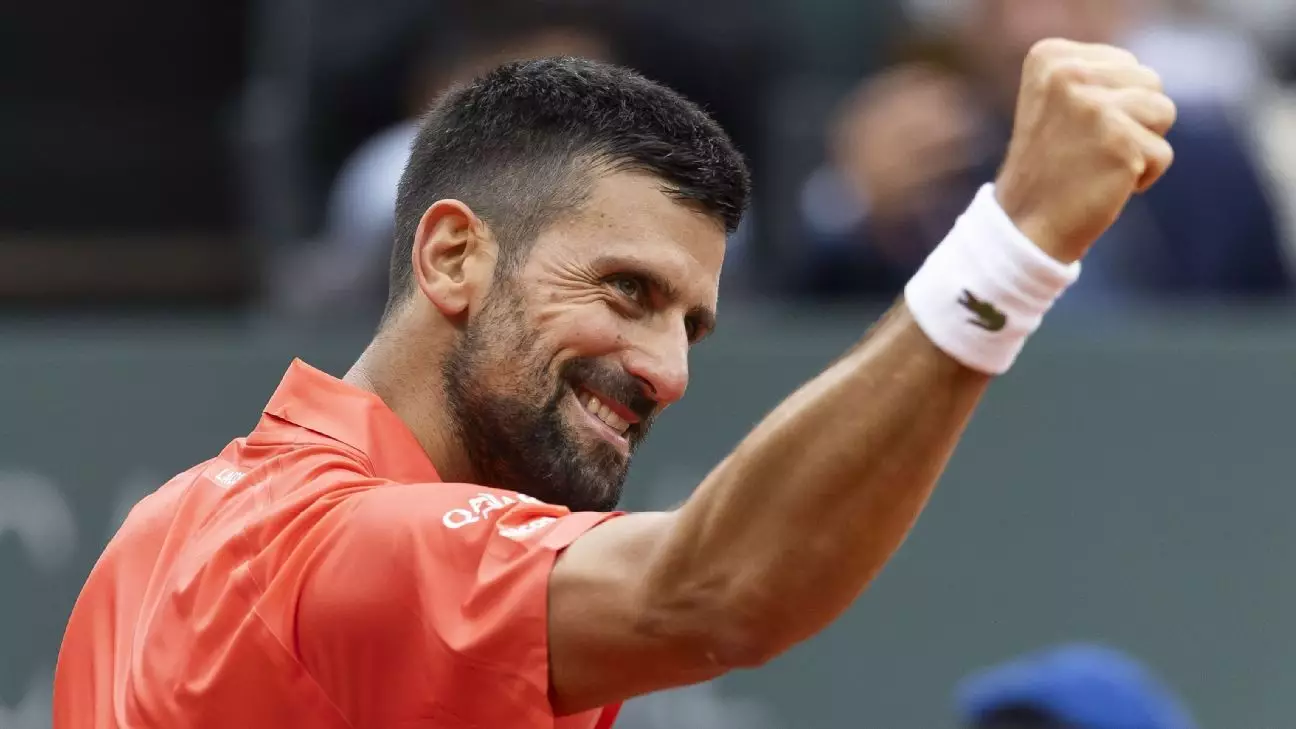In a remarkable display of resilience, Novak Djokovic finally secured a long-awaited victory on clay, defeating Marton Fucsovics 6-2, 6-3 at the Geneva Open. This match, notable for its downpour of rain, marked a critical turning point in Djokovic’s campaign as he faced a challenging European spring with a couple of disappointing losses earlier in the season. It is clear that the Serbian maestro is determined to change the narrative as he gears up for his next showdown with Matteo Arnaldi, who previously bested him at the Madrid Masters.
Djokovic’s comments post-match reveal a reflective side to the champion. “It’s great to break the ice, in a way,” he said, emphasizing the significance of finally clinching a win on a surface he finds demanding. This sentiment underlines the psychological hurdles that top-tier athletes often face, where the weight of expectations can be just as challenging as their physical opponents.
Analyzing the Key Factors
A closer look at the match statistics reveals the strategic prowess that defines Djokovic’s gameplay. He showcased a powerful service game, landing a remarkable 73% of first serves and eliminating any threats by not facing a single break point during the encounter. Djokovic attributes much of his recent success to his serving prowess, which he dubbed his “strongest shot” in this match. This reliance on a high-quality serve, particularly as he continues to adapt to the nuances of clay, illustrates the ongoing evolution of his skillset.
As he steps into the quarterfinals, the stakes are higher. Facing a player who recently defeated him could be a double-edged sword. On one hand, he might enter the match with a determined mindset to exact revenge; on the other, the psychological impact of that prior defeat cannot be underestimated.
The Geneva Open: A Springboard for Roland Garros
The Geneva Open serves as an important precursor to the highly anticipated French Open. Many players, including the top-seeded Taylor Fritz, have suffered early exits in other tournaments leading up to Roland Garros. Fritz himself made a statement by advancing to the quarterfinals after overcoming Quentin Halys, but faced with the formidable Hubert Hurkacz next, his journey remains fraught with challenges.
Similarly, fourth-seeded Karen Khachanov’s progression against Kei Nishikori, who unfortunately retired during the match, highlights the unpredictability of tennis. With injuries and weather conditions factoring heavily into players’ performances, adaptability and mental toughness play a crucial role.
Anticipating the Clash
As the competition intensifies, Djokovic’s pursuit of his historic 100th career title is not just about numbers; it embodies a narrative of perseverance and tenacity. Every match brings with it a new layer of complexity—against a backdrop of expectations and personal aspirations, Djokovic’s journey isn’t merely about winning but redeveloping his identity on clay after prior setbacks.
On the brink of the French Open, every match counts. For Djokovic, this moment at the Geneva Open could either propel him into the next chapter of his illustrious career or present another obstacle to navigate. As fans and analysts alike scrutinize each move, his upcoming match against Arnaldi will undoubtedly be a focal point for those invested in the sport. Djokovic’s ability to rise from adversity makes this tournament not only an essential step for his season but also a captivating spectacle in the world of tennis.

